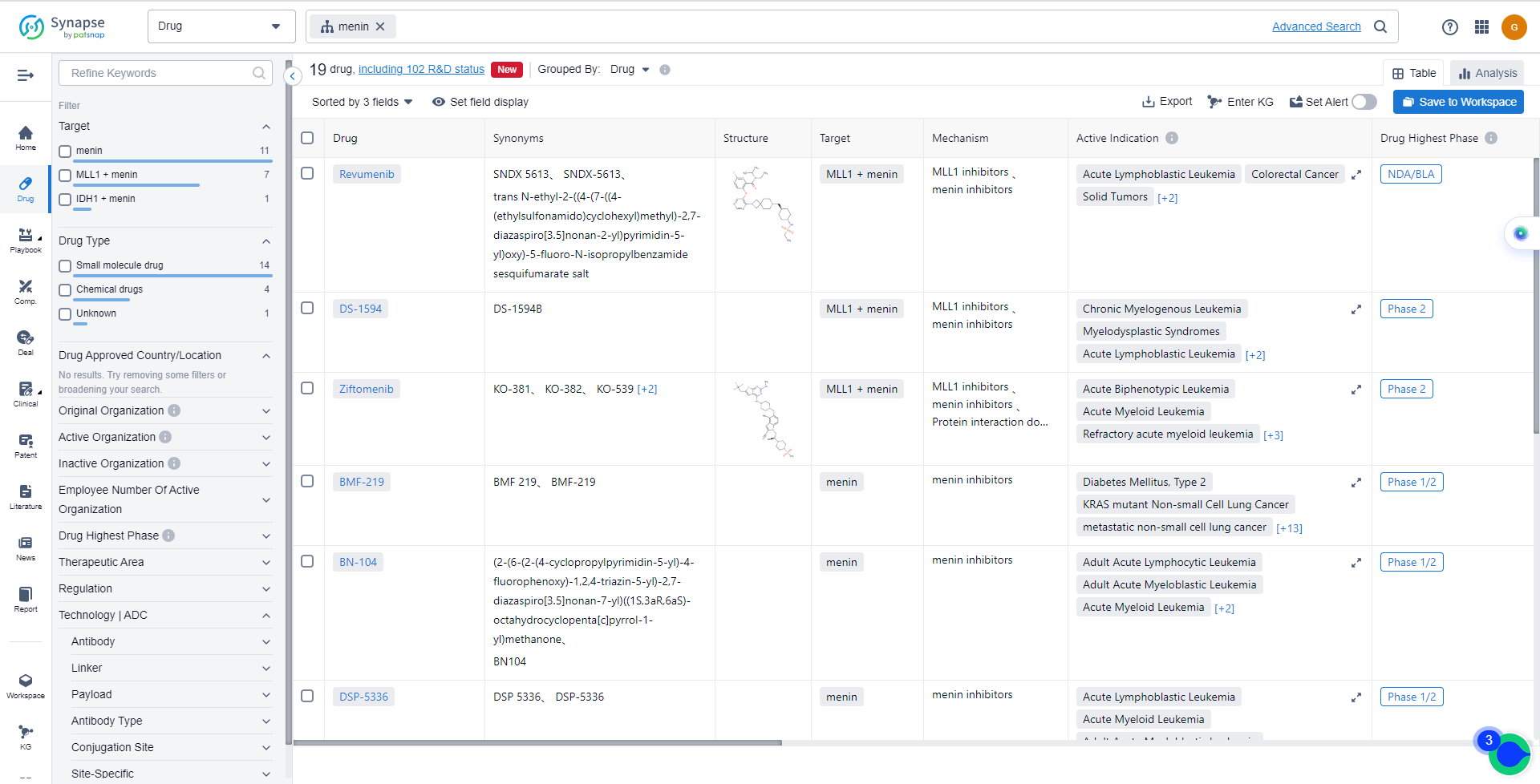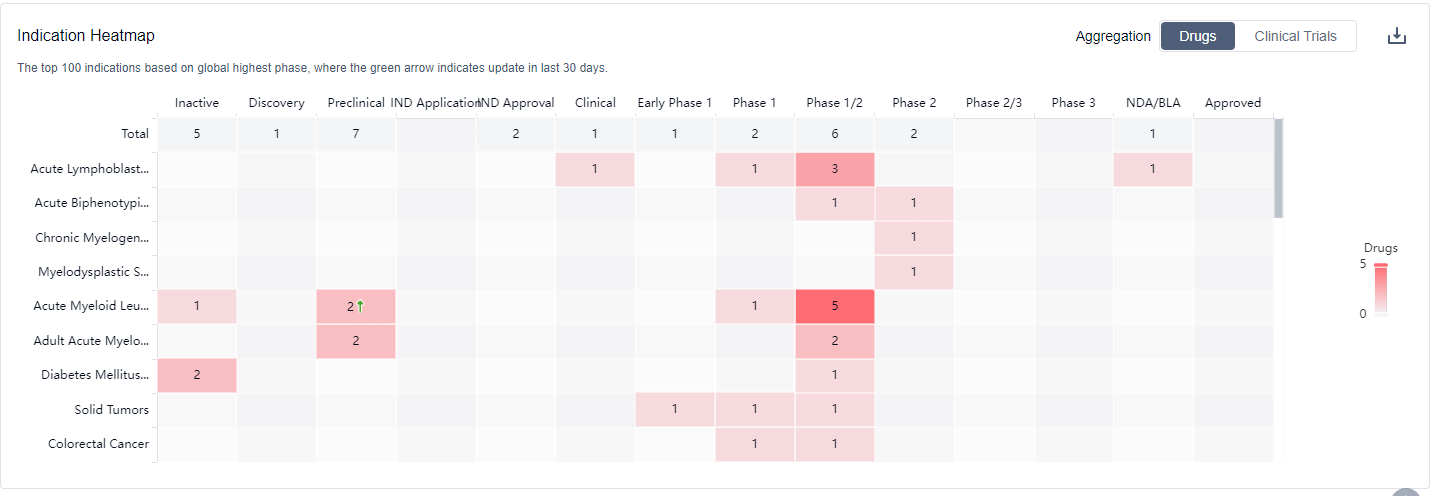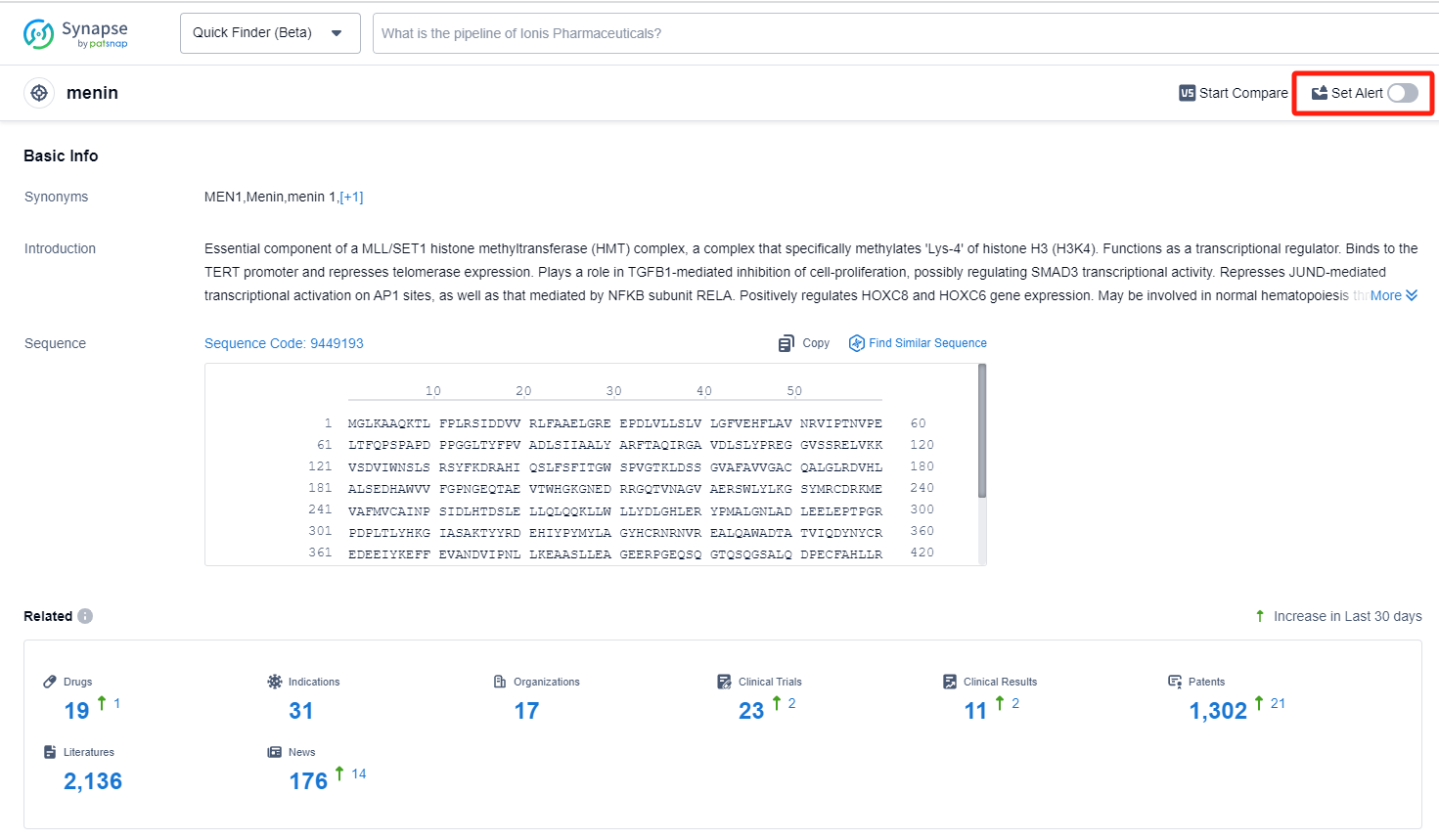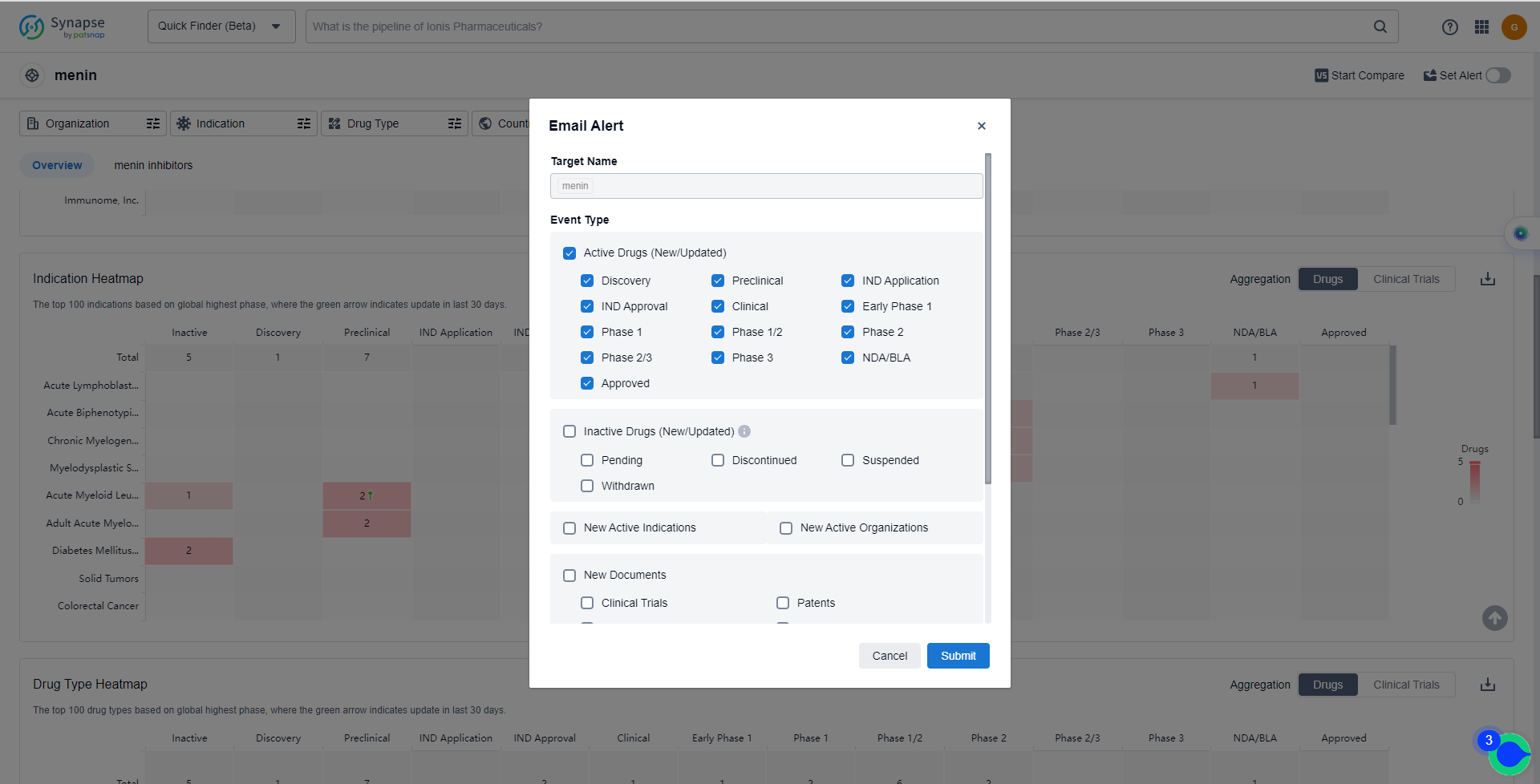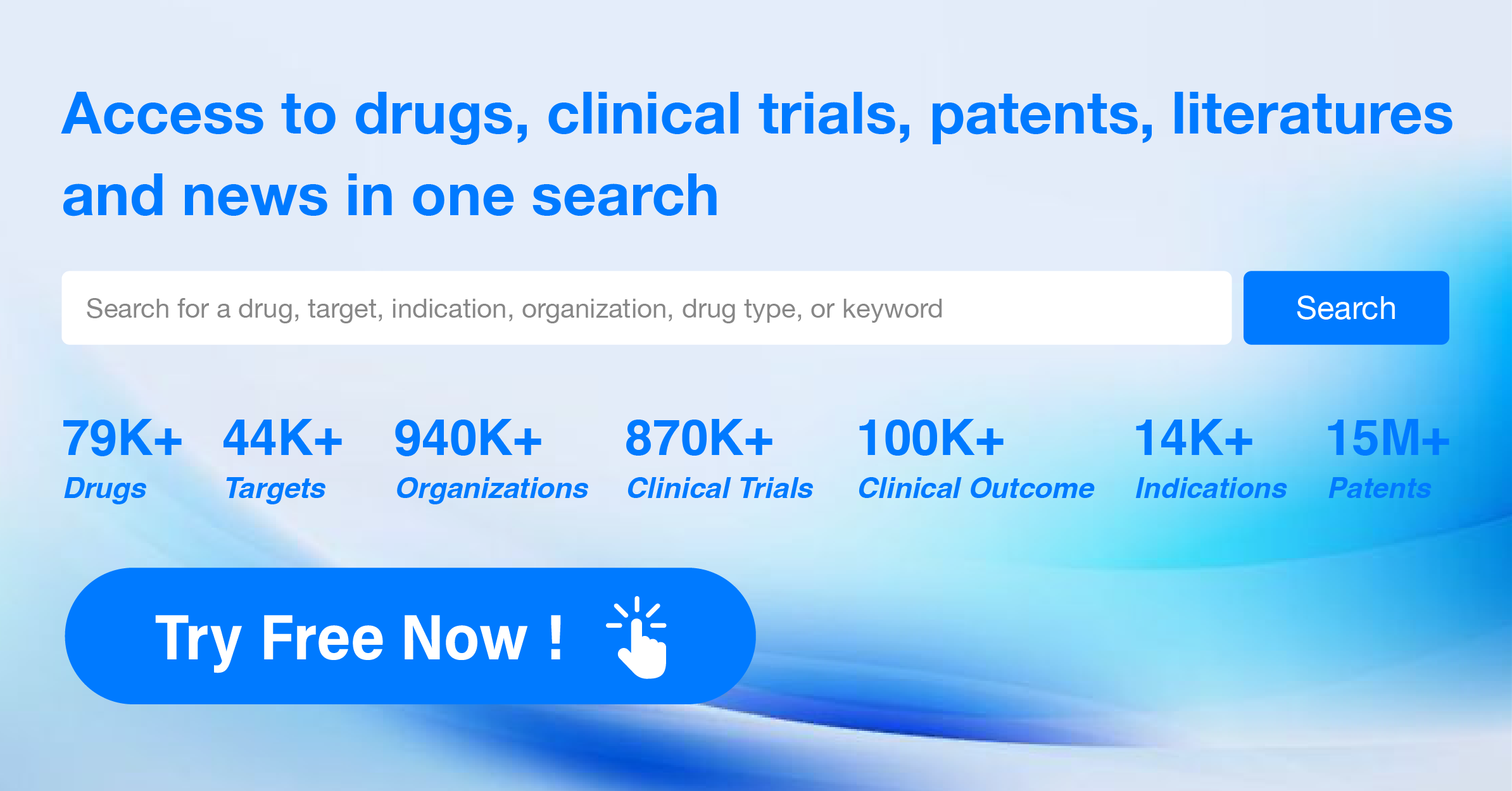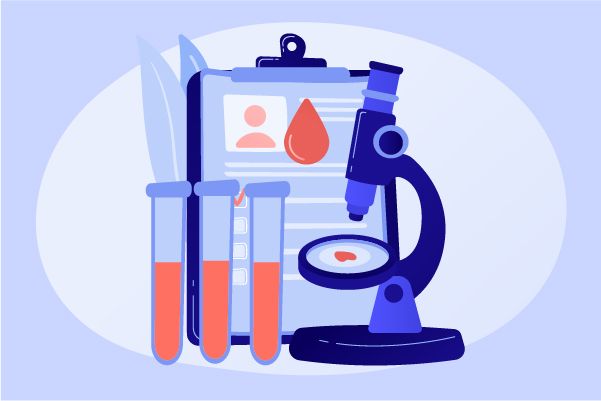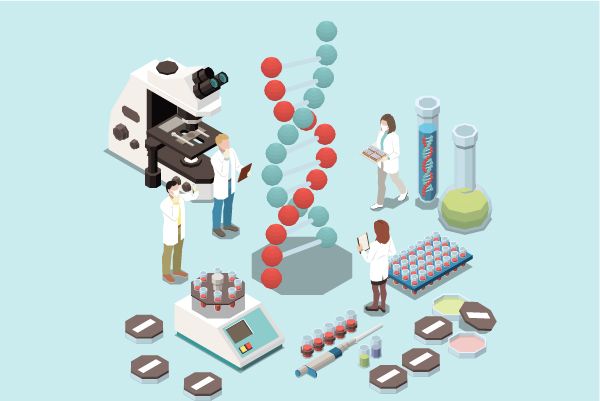Deciphering Menin Inhibitors and Keeping Up with Their Recent Developments
Menin is a protein encoded by the MEN1 gene and plays a crucial role in the human body. It acts as a tumor suppressor and is involved in regulating cell growth and division. Menin interacts with various proteins and transcription factors to control gene expression, particularly those involved in cell cycle regulation and DNA repair. Mutations in the MEN1 gene can lead to the development of multiple endocrine neoplasia type 1 (MEN1) syndrome, a hereditary disorder characterized by the formation of tumors in various endocrine organs. Understanding the role of menin is essential for developing targeted therapies and improving treatment options for MEN1 syndrome and related conditions.
Menin is the expression product of the MEN1 gene, which causes multiple endocrine neoplasia. Multiple endocrine neoplasia syndrome is a familial autosomal dominant disease characterized by endocrine organ tumors such as parathyroid, islet, and anterior pituitary tumors. The occurrence of facial vascular fibromas, gliomas, and lipomas is also related to MEN1. Studies have shown that abnormal expression of Menin is related to the occurrence of diseases such as leukemia and diabetes. The mechanism of mutation promoting tumor formation is mainly through the functional loss of both alleles, causing minor mutations such as missense mutations, or larger mutations such as heterozygous loss. More than 400 types of MEN1 mutations have been found in mammals and microorganisms, most of which are nonsense mutations and frameshift mutations. These two mutations lead to the shortening or inactivation of the encoded gene, thereby changing the key function of Menin inhibiting tumor activity. In islet cells, Menin mutations will lead to excessive proliferation of β cells and the formation of islet β cell tumors. Overexpression of Menin can block the proliferation process of β cells, leading to a relative lack of insulin secretion.
Based on the analysis of the provided data, Syndax Pharmaceuticals, Inc. is the company with the highest stage of development on the target menin. The indications for drugs targeting menin cover a wide range of diseases, including various types of leukemia, solid tumors, and other cancers. Small molecule drugs and chemical drugs are progressing rapidly, indicating intense competition in the development of innovative drugs. The United States, China, and several European countries are actively developing drugs targeting menin. China, in particular, has shown progress in both Phase 1/2 and preclinical stages. Overall, the target menin presents a competitive landscape with potential for future development in the pharmaceutical industry.
How do they work?
Menin inhibitors are a type of drug that target the protein called menin. Menin is a protein that is encoded by the MEN1 gene and plays a role in regulating gene expression. Inhibiting menin can have therapeutic effects in certain diseases, particularly in the context of cancer.
From a biomedical perspective, menin inhibitors are being studied and developed as potential treatments for various types of cancer. By inhibiting menin, these drugs aim to disrupt the abnormal gene expression patterns that contribute to cancer growth and progression. Menin inhibitors have shown promise in preclinical studies and early-phase clinical trials, particularly in the treatment of certain types of leukemia and other solid tumors.
It is important to note that menin inhibitors are still under investigation and have not yet been approved as standard treatments for cancer. Further research is needed to fully understand their efficacy, safety, and potential side effects.
List of menin Inhibitors
The currently marketed menin inhibitors include:
For more information, please click on the image below.
What are menin inhibitors used for?
Menin inhibitors have shown promise in preclinical studies and early-phase clinical trials, particularly in the treatment of certain types of leukemia and other solid tumors. For more information, please click on the image below to log in and search.
How to obtain the latest development progress of menin inhibitors?
In the Synapse database, you can keep abreast of the latest research and development advances of menin inhibitors anywhere and anytime, daily or weekly, through the "Set Alert" function. Click on the image below to embark on a brand new journey of drug discovery!
